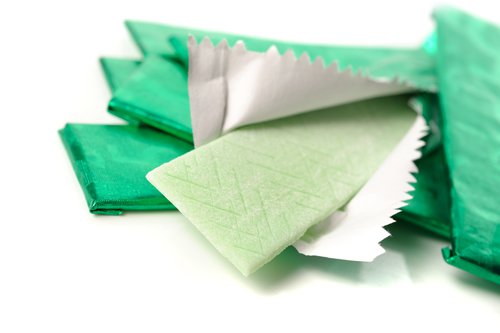Nine Habits to Wake Up With A Flat Stomach


Reviewed and approved by Doctor Carlos Fabián Avila
Many people want to wake up with a flat stomach. However, when it comes to making this dream a reality, it’s often difficult to know where to start, and many of us don’t put the right habits into practice.
In order to achieve this kind of goal, the first thing you need to do is leave your sedentary routine behind and, little by little, adopt a more active lifestyle. You’ll also need to take little steps to improve your daily habits.
Often, adding habits as simple as those we’re about to share with you to your daily routine can help you feel good, and give you a more slender figure. We invite you to try them for yourself!
Habits to help you wake up with a flat stomach
If you want to wake up with a flat stomach, it’s important to pay attention to the last things you do each night before going to bed.
1. Skip the dairy products after dinner

Yogurt has many good properties, but if what you want is a flat tummy, you should avoid having them at dinner time. Many of these products have large amounts of added sugars as well as lactose, a natural sugar that’s difficult for many people to digest.
The combination of lactose and added sugars can cause inflammation and swelling of the stomach. However, if you think that yogurt is the best option to satisfy you at dinner time, try to choose a natural yogurt with no added sugar.
Eat fruit after dinner. Not only is it rich in fiber but will help to sate your appetite, allow you to sleep well, and go to the bathroom the next morning.
Check out these Dinners that will Help You Burn Fat
2. Do eight minutes of exercise before going to bed
Doing a minimum of 30-40 minutes of physical exercise each day, eight minutes of which you should do two to three hours before going to bed, will help you to wake up with a flatter stomach. Not only that but it’ll also help you to maintain your optimal weight.
Here’s one quick exercise you can do:
- Stand up with your feet directly below your shoulders.
- Grab some dumbbells and perform a squat. Then stand up and lift the dumbbells above your head.
- Repeat the exercise several times until you complete the eight minutes. Between one squat and the next, you can take a short pause of 20 – 30 seconds.
3. Taking a cold shower can help you wake up with a flat stomach
According to popular belief, having a cold shower before you go to sleep can help improve your circulation and help you wake up with a flat stomach.
By taking a cold shower, you lower your body temperature. As your body tries to increase its temperature, it stimulates the tissue responsible for burning energy. This way, you’ll burn more calories.
If you’re not feeling up to a cold shower, go for a lukewarm shower, rather than a hot one.
4. Have a well-balanced breakfast

- A good option might be a combination of oats, dark chocolate, red fruits, nuts, and cinnamon.
- If you have any doubts about how to maintain a healthy diet that meets all your needs, consult with a doctor or a nutritionist.
5. Reduce your consumption of sodium
While it’s always important to keep an eye on the salt levels in your diet, this is particularly important when it comes to the last meal of the day.
Restaurant food, especially some types of international delights, tends to have a lot of sodium. It bloats you.
Read Six Ways to Reduce Sodium in Your Diet
6. Say no to sugar-free gum to wake up with a flat stomach

Although you may find it hard to believe, sugar-free gum is not as innocent as it looks. Several studies have shown that sorbitol, a type of sugar alcohol used in sugar-free gum, is hard for your body to digest.
As a result, this favors bacterial fermentation, which could end up causing you diarrhea, as well as bloating and flatulence. And that’s not all. By chewing gum, you actually send a signal to your brain that stimulates appetite.
7. Skip the cereal bars
Cereal bars may seem to be the perfect snack, but nothing could be further from the truth, for a number of reasons. These seemingly harmless items contain whey, which causes bloating.
Furthermore, they contain a large amount of added sugars, which are best to avoid. They can also contain soybeans, which tend to cause gas.
Also, remember they’re a processed product. Scientific studies reveal this type of food contains more calories than you’d like to think, and can cause you to gain weight.
8. A light dinner
Though this might seem obvious, we feel it’s important to remind you: if you want to avoid sleep issues and feeling bloated, try to eat a light dinner, preferably 3 hours before going to bed.
9. Drink homemade smoothies

While eating whole pieces of fresh fruit is undoubtedly the best way to take advantage of all their natural properties, there are those who can’t resist a smoothie as a breakfast or afternoon snack. In this case, it’s always best to prepare them at home, with no added sugars, sweeteners, or other additives.
If you can put all these tips into practice alongside a healthy lifestyle, complete with daily exercise, a good diet, and plenty of rest, your dream of waking up with a flat stomach will soon be within reach. Remember, the habits you put in place before going to bed are extremely important.
This text is provided for informational purposes only and does not replace consultation with a professional. If in doubt, consult your specialist.








